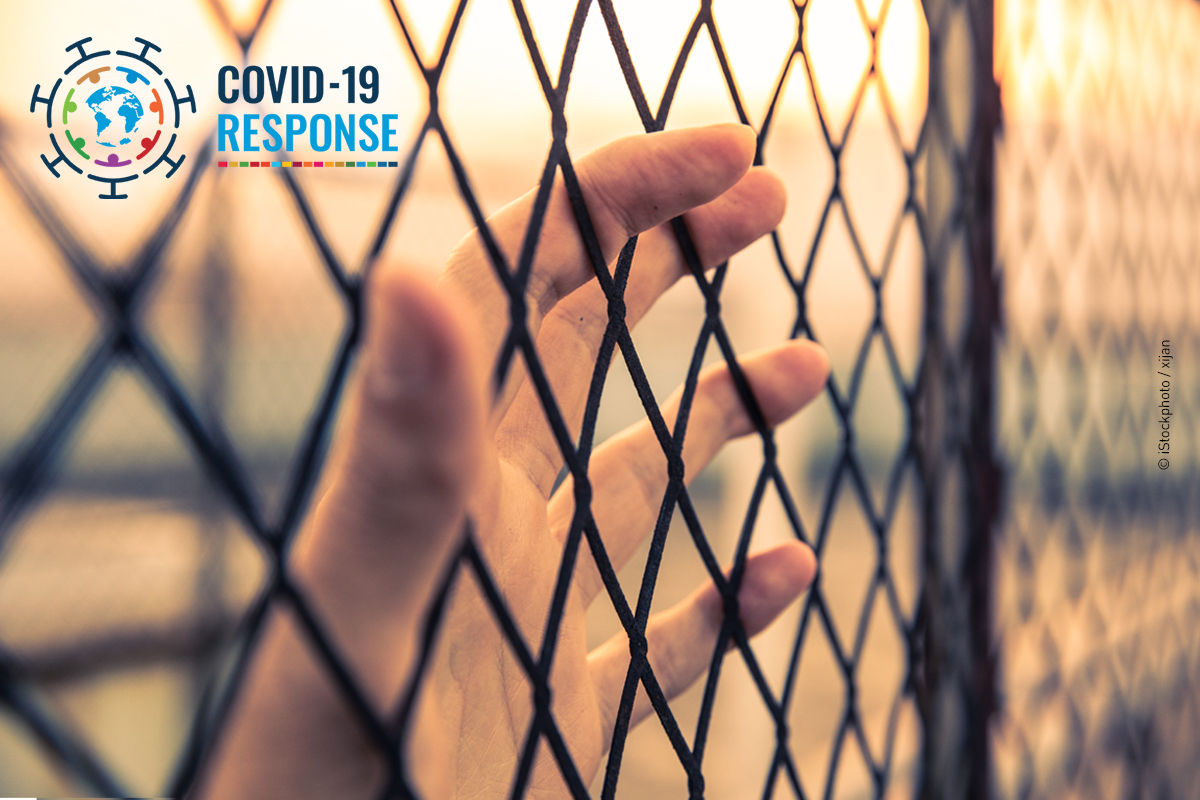
The COVID-19 pandemic is having a major impact on the support provided to victims of human trafficking as services are reduced, postponed and in some cases halted.
But an organization in Medellin, Colombia is continuing to provide essential care to survivors by operating online through a project financed by the UN Voluntary Trust Fund for Victims of Human Trafficking.
“After the government imposed restrictions of movement last March, our entire team couldn’t visit the victims they usually attend to in person,” says Betty Pedraza Lozano, the founder and director of Espacios de Mujer. “So now our social workers and psychologists operate online using tools like Skype and WhatsApp.”
Espacios de Mujer is assisting 20 women and one man aged between 18 and 30 who were rescued from forced prostitution and labour in Colombia and from countries in Asia, Europe, Latin America and the Caribbean, and the Middle East.
Before the mandatory quarantine, all had been able to earn a living but now their work and sources of income have been interrupted. In these times of economic downturn and uncertainty, it is especially important to maintain support networks for vulnerable groups of people, explains Ms Lozano.
“Loss of work is causing personal and family conflicts. Staying at home without specific tasks can lead victims to dwell on past events. This can lead to a state of sadness and anguish, strengthened by concerns about the future.”
According to Espacios de Mujer, the people they now support virtually are responding well to the new methods of communicating.
"We do see benefits from online counselling,” says social worker Katherine Sarrazola. “Our psychosocial team is actually dedicating more attention and time than before to the victims.”
Financial needs are also being addressed remotely. Vouchers for food and hygiene products that can be used in supermarkets are provided via mobile phones by Espacios de Mujer.
The pandemic has reinforced the importance of good communication between rescued victims of human trafficking and the teams who help them to rebuild their lives.
“Even before the pandemic, we made efforts to ensure the people we support have access to a smartphone and internet connection,” says Betty Pedraza Lozano. “Such steps are seen as an important part of the process to reintegrate them into society.”
Although the restrictions on movement have limited the scope of human traffickers in Colombia to pursue their illicit trade, Ms Lozano fears they will find new opportunities.
“We see that the virtual sex industry is expanding significantly. The demand for webcam services has increased by 30 percent,” she says.
During the lockdown period, many women who would not usually work in the online sex industry are using online platforms as a source of income for themselves and their families.
“For up to nine hours a day, female sex workers, fashion models and vulnerable women are performing sexual and erotic services in front of the camera for internet users. We believe that traffickers could try to recruit new victims through these channels,” says Betty Pedraza Lozano.
The UNODC-managed Voluntary Trust Fund for Victims of Human Trafficking is an integral part of the global initiative to address trafficking in persons and provides humanitarian, legal and financial aid to victims of trafficking through non-governmental organizations.